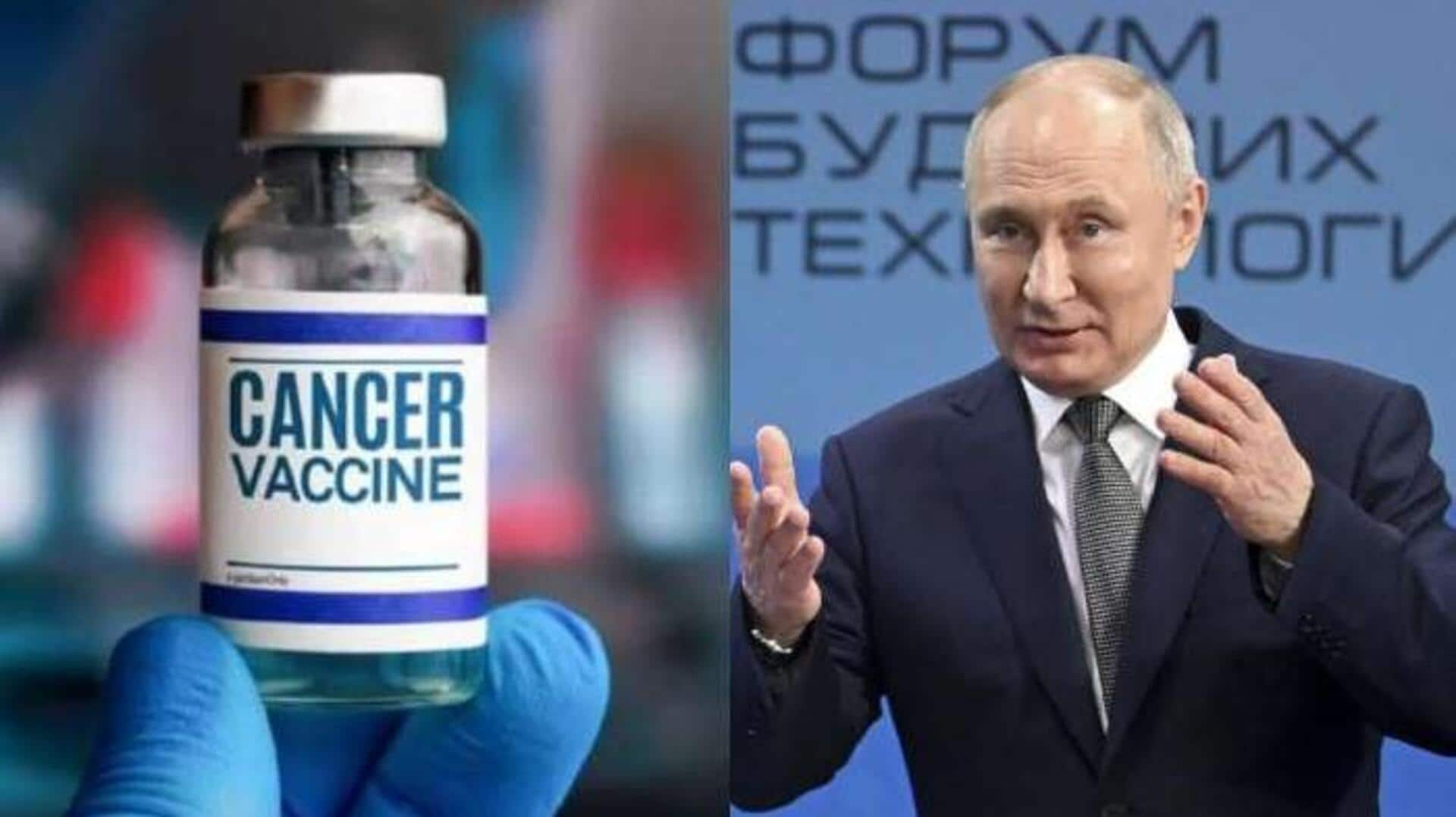
Russia's cancer vaccine to be available for free from 2025
What's the story
Russia has claimed to have developed a successful mRNA-based vaccine for cancer treatment, according to state-run news agency TASS. The revolutionary vaccine will be made freely available to all cancer patients from early 2025. The major breakthrough was announced by Andrey Kaprin, the General Director of the National Medical Research Radiological Center under the Russian Ministry of Health.
Trial outcomes
Pre-clinical trials show promising results
The pre-clinical trials of the cancer vaccine have shown that it can inhibit tumor growth and possible metastases, Alexander Gintsburg, Director of the Gamaleya National Research Center for Epidemiology and Microbiology, revealed. Gintsburg also emphasized the possible involvement of artificial neural networks in drastically cutting down the time to develop a personalized cancer vaccine.
Technological advancement
AI could expedite personalized vaccine development
Currently, the process of creating a personalized cancer vaccine is time-consuming, because of the complex calculations involved in determining the structure of a vaccine or customized mRNA. Gintsburg suggested that artificial intelligence (AI) could potentially reduce this duration to less than an hour. The Ivannikov Institute has been engaged to utilize AI for these mathematical computations, specifically through neural network computing.
Data requirement
Training AI for vaccine development requires extensive data
To train the AI for this task, an experimental database of 40,000 to 50,000 tumor sequences would be needed. The sequences would have to include identification of antigen compatibilities in a patient converted into protein or RNA. "This would help determine whether or not this combination can be used for the individual," Gintsburg explained.
Teamwork
Collaborative effort behind vaccine development
The cancer vaccine was developed by scientific teams from the Gamaleya National Research Center for Epidemiology and Microbiology, Hertsen Moscow Oncology Research Institute, and Blokhin Cancer Research Center. Russian Health Minister Mikhail Murashko had revealed this in an interview with TASS. The research project was state-funded under a government order.